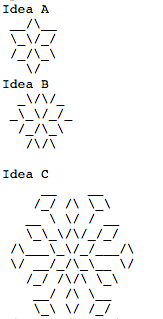The Art of AI Research
How Nature and Art can inspire AI Research

In this article i will discuss "the art of AI research" it was inspired by the great paper by Keneth O. Stanley Paper (Published in: Leonardo Volume 51, Issue 2, p. 165-172, April 2018, MIT Press) : Art in the Sciences of the Artificial.
In this article i will first cover the very interesting ideas that are put forward by Keneth O. Stanley on this subject and in the second part of the paper i will add my own thoughts on the subject :). (But i cannot emphasize enough that my take on this was only possible because of the great ideas in the paper of Keneth O. Stanley)
1 The AI Algorithm as a "painting" of nature
...An algorithm in the spirit of AI or alife is in effect a kind of “painting” of nature, only viewed through the lens of process rather than through image
This is a very interesting comparison: Like a painting can be seen as an (artificial) image representation of nature an AI algorithm can be seen as an (artificial) process 'representation' of nature.
2 A new AI algorithm could serve as a different perspective on intelligence rather than a better performer.
There is a preoccupation with performance in AI-research. There is a danger that this draws away attention from the more subjective observations and discussions. In the paper this is very nicely described as:
Perhaps an artificial intelligence can be a kind of "Starry Night (of van Gogh)", prompting us to view the mind anew. In this way, a new AI algorithm could serve as a different perspective on intelligence rather than a better performer.
3 Art is essential to AI Research.
Keneth O. Stanley gives anecdotes from his own career to show the importance of discussing subjective and aesthetic aspects of AI algorithms and to support the idea that Art is essential to AI research.
The first is an example of an experience where the author "played" with evolving "spaceship-like" shapes. The feeling of correspondence of this proces with the proces of natural selection in nature inspired new algorithms and networks : CPPN's and HyperNEAT.
The second is an experiment with evolving images where the observation was that the most interesting images started almost always with seed images that had totally different initial associations. This led to a new algorithm for "novelty search". Novelty search, an algorithm that searches without an objective (in contrast to algorithms that strive to create interesting images by 'optimizing' objectives.
In the paper this is more generalized and beautifully described as:
There is no a priori reason to believe that the path through the space of algorithms is lit exclusively by performance and accuracy instead of sometimes by resonance and elegance. … While a good algorithm is sometimes one that performs well, sometimes a good algorithm is instead one that leads to other algorithms and new frontiers.
While reading the paper an image came to mind of AI research ideas and algorithms as "snowflakes" or "ice crystals" in the search space. Where one seed idea leads to (forever) branching and crowing crystal structures of variations and improvements and a completely new insight or idea leeds to the seed of a new "ice crystal".
I hope this vivid (and slightly artistic) image and this article will be of help in your own research :)

Related Posts